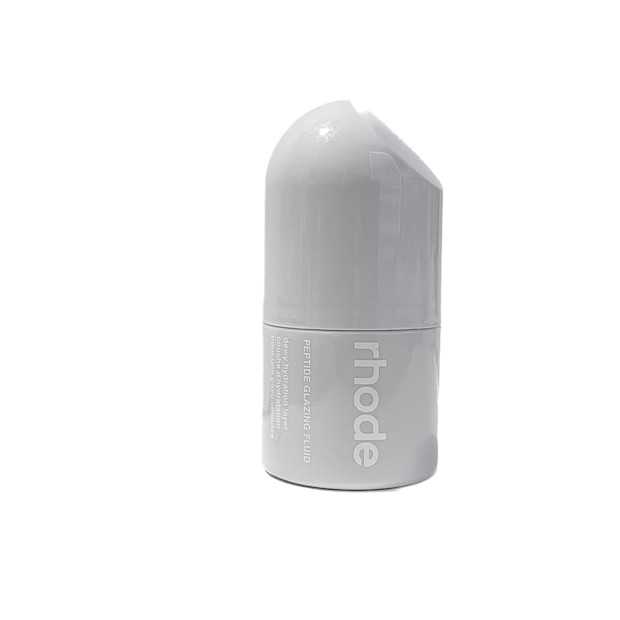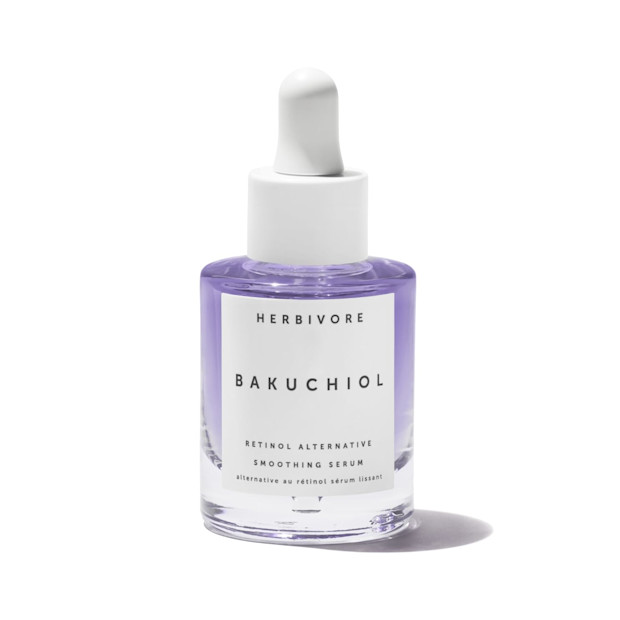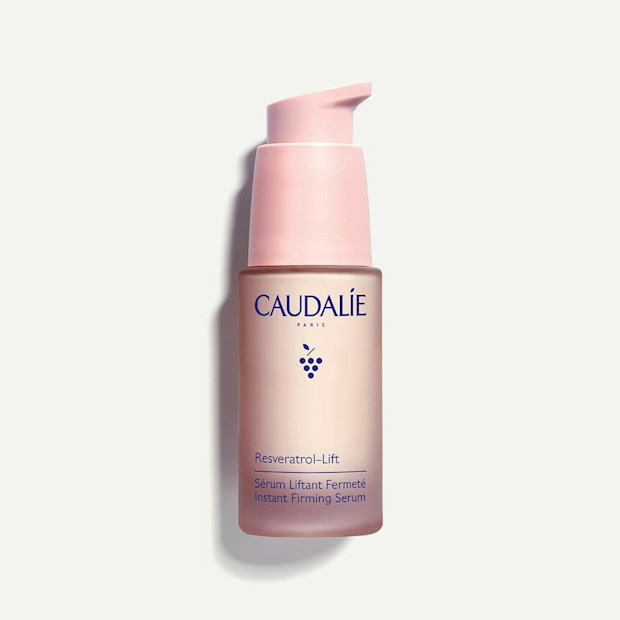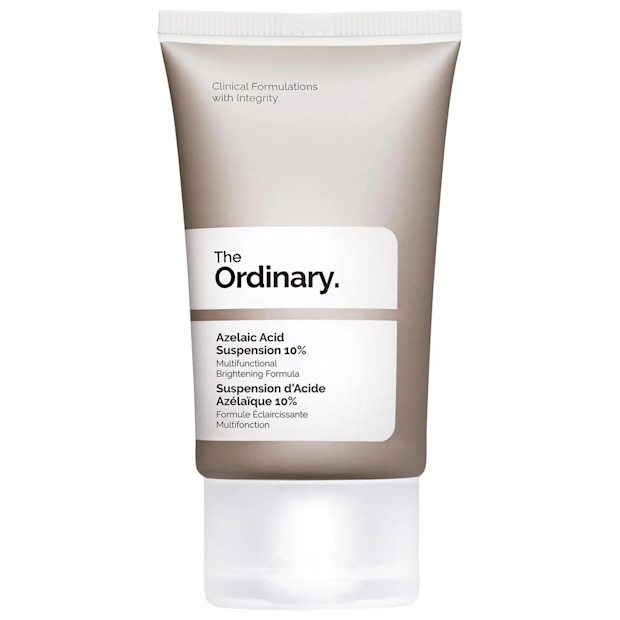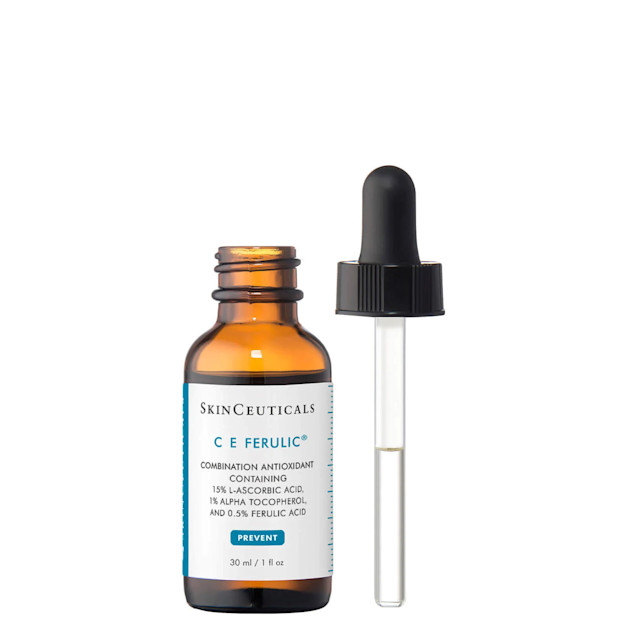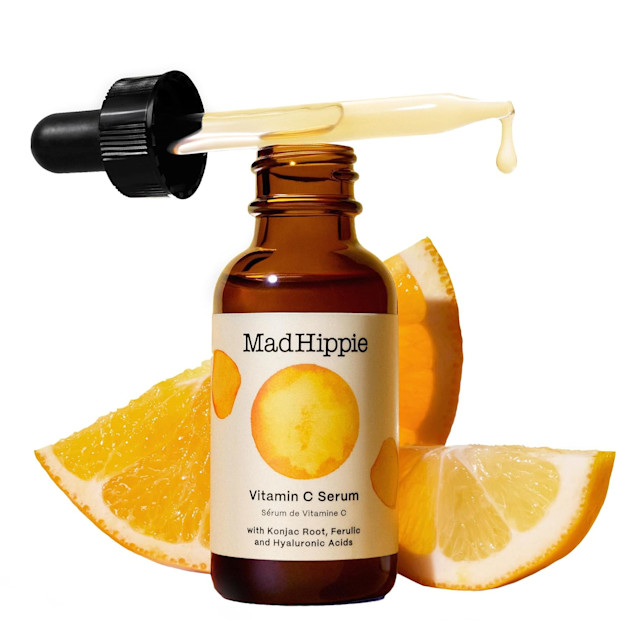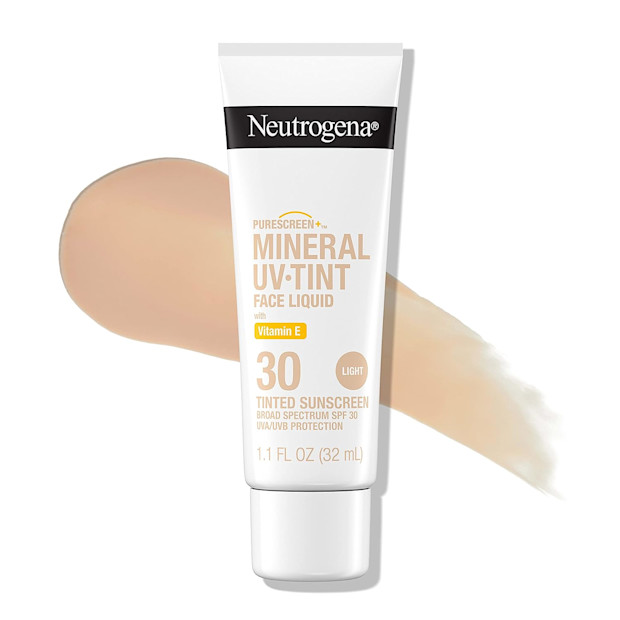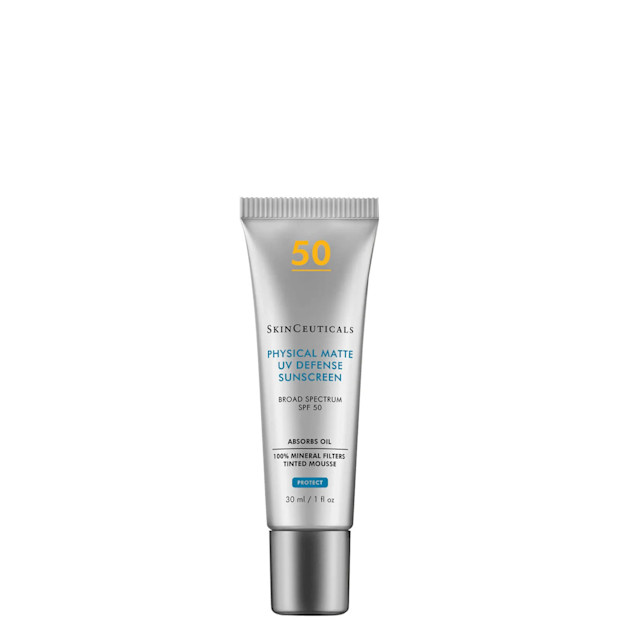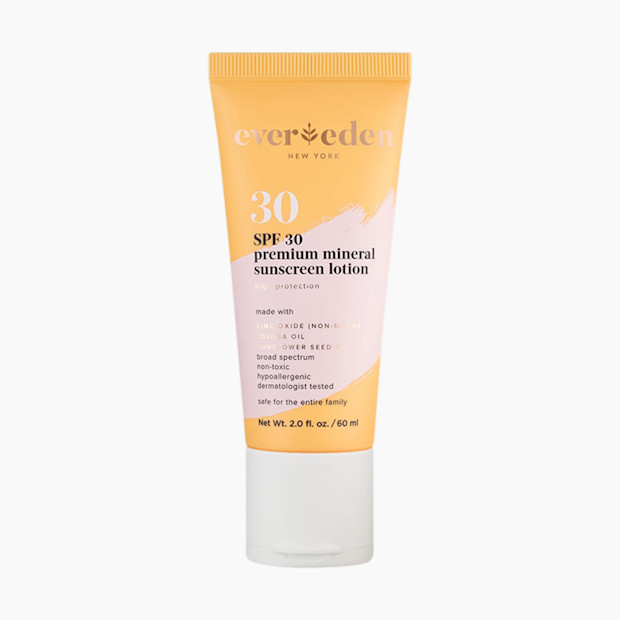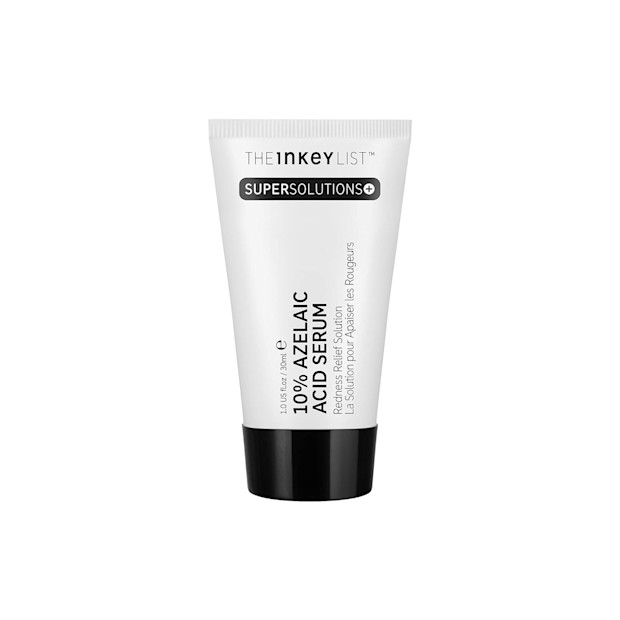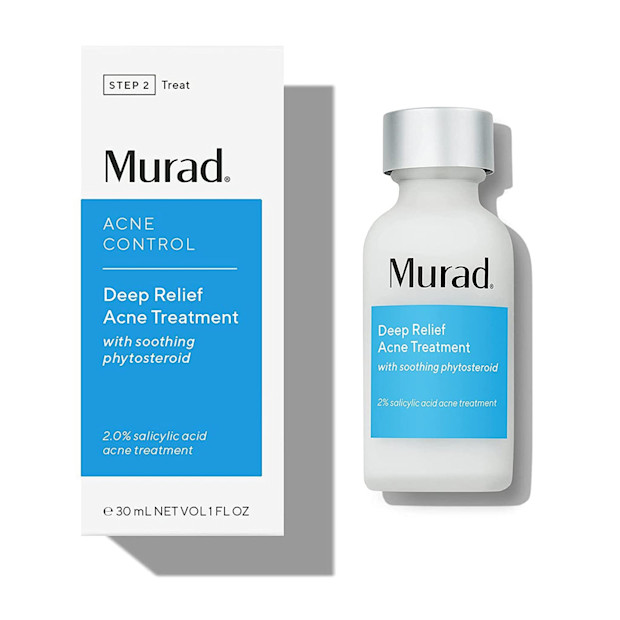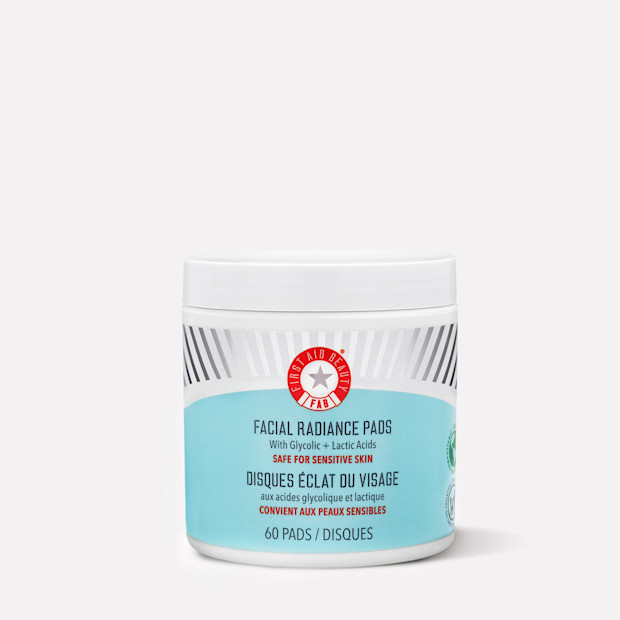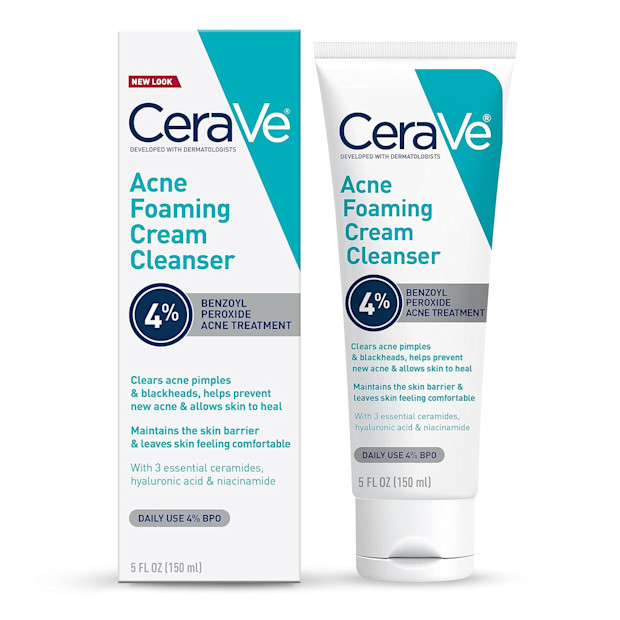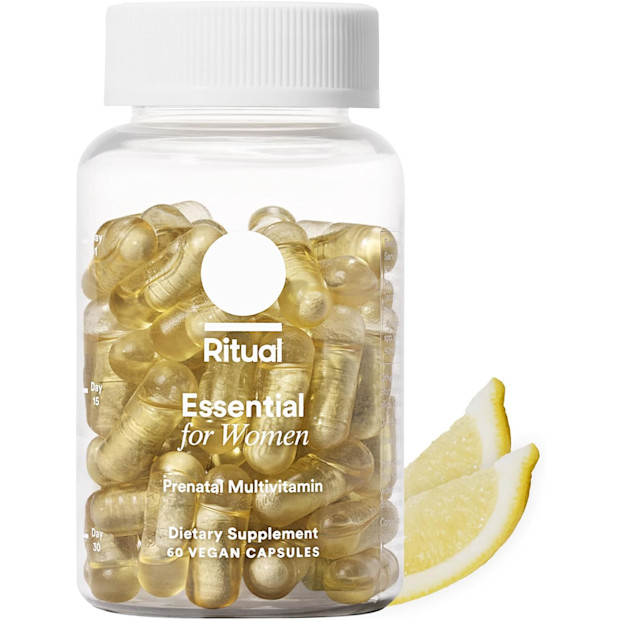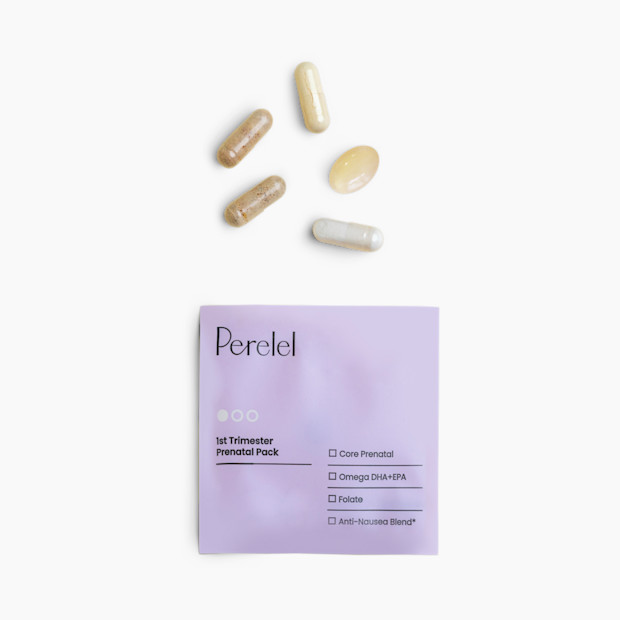
5 Skin Care Products to Avoid During Pregnancy—and What to Use Instead
We talked to dermatologists to find out the best pregnancy-safe skin care—and what to avoid.

In This Article
For some, pregnancy unveils glowy, blemish-free skin that’s as smooth as the baby they’ll be meeting in a few months. And for others, building a human results in skin ailments you didn’t even know you were prone to.
Wherever you and your pregnancy skin land on that spectrum, your skin care routine will help pull you through—but with some tweaks. Just like some foods, drinks and workout moves that you have to stow away until after baby arrives, some skin care products will have to get the boot (just for a bit).
According to Dr. Courtney Rubin, some topical ingredients “should be stopped as soon as you find out that you are pregnant. I recommend not using them if you are trying to conceive.” Since most people don’t find out they’re pregnant for several weeks, Jocelyn Gandelman, a board-certified dermatologist at Schweiger Dermatology Group in NYC, adds that if you’ve been using some of the ingredients on this list, don’t freak out. “The risk of absorption through your skin to the pregnancy is low, so don’t worry too much if you didn’t stop products until later,” Dr. Gandelman tells us. However, if you’re using dermatologist-prescribed medicines like Isotretinoin, tazarotene, spironolactone, and tetracycline antibiotics, Dr. Gandelman says those should be discontinued immediately (as they are typically oral versus topical).
For specific skin issues like fine lines, acne and hyperpigmentation, maintaining your progress during pregnancy may be a priority, and there are product swaps out there that can help you keep up with your skincare maintenance. We talked to three dermatologists about the products pregnant people should avoid and the products they can use instead to maintain the look and feel of your skin.
What to Avoid: Retinoids
Retinoids, a vitamin A derivative, help with a litany of skin issues like acne, wrinkles or fine lines and skin texture. Retinoids can be taken orally or topically and can be found in different concentrations both in over-the-counter and prescription formulations. Topical retinoids can be listed as retinol, retinyl palmitate, retinal, tretinoin or adapalene on an ingredient list, Dr. Rubin says, so make sure you read your skincare labels carefully and reach out to your doctor if you are unsure.
A well-known oral retinoid used to treat acne, isotretinoin (brand name Accutane), should never be used during pregnancy or while trying to conceive. While they’re packed full of benefits for pre-pregnancy skin, dermatologist Dr. Jean Charles says that since studies have shown that oral retinoids can cause birth defects, topical retinoids are not recommended either.
What to Use Instead: Exfoliating Acids
If you rely on retinoids to manage fine lines and wrinkles, Dr. Charles says to “keep up with what your retinoids have already done” and that resveratrol is a great alternative, as well as peptides and bakuchiol. To address dullness and textured skin, Dr. Rubin says, “exfoliating acids such as glycolic acid, lactic acid and mandelic acid are safe in pregnancy and help with skin turnover, dullness, breakouts and pigmentation.” When choosing a glycolic acid product like an exfoliating toner, Dr. Gandelman says that most dermatologists will suggest one that is less than 10 percent concentration (most products will list the concentration on the label).
What to Avoid: Skin Lightening Products
Hydroquinone is the active ingredient in many products that target dark spots and hyperpigmentation. While hydroquinone has not been studied as much as retinoids, Dr. Charles says that the way it’s absorbed into our skin is a part of the reason it isn’t recommended to continue to use while pregnant.
What to Use Instead: Gentle Lightening Ingredients
As someone who struggles with hyperpigmentation, like many others who have melanated skin, I know that giving up hydroquinone for an entire nine months can feel like you’re taking a big step backward in reversing dark spots. Instead of opting for a dark spot corrector containing hydroquinone, all three of the experts I talked to suggested azelaic acid as a solid swap for hyperpigmentation.
“Azelaic acid is a great ingredient that is underrated for the treatment of hyperpigmentation,” Dr. Charles tells us. Kojic acid also comes highly recommended for dark spot treatment by both Dr. Charles and Dr. Rubin. By blocking the production of tyrosinase, an enzyme important to creating melanin, both azelaic acid and kojic acid help to limit the pigment of dark spots. And to give your skin a glowy boost (other than your pregnancy glow, of course), Dr. Gandelman says incorporating vitamin C and niacinamide “can also be used as good alternatives” to cycle into your routine.
What to Avoid: Chemical-Based Sunscreen
We already know how essential sunscreen is to your skincare routine. For pregnant people, Dr. Gandelman says that skin conditions like melasma and other hyperpigmentation are very common pregnancy-related skin problems that can worsen with sun exposure. And even if you’re staying out of the sun, Dr. Charles says that your skin also needs to be protected from “visible light from overhead lighting and the light from phones and computer screens.”
This means sunscreen is an even more important part of your daytime skincare routine. Some higher-end sunscreens (that don’t leave behind the dreaded white cast) have a chemical-based formulation with active ingredients like avobenzone, octinoxate or oxybenzone, and a study showed a link between oxybenzone usage during pregnancy and Hirschsprung’s Disease (HSCR) in babies. Dr. Rubin and Dr. Gandelman agree you should kick it out of your skincare routine while you’re pregnant.
What to Use Instead: Mineral-Based Sunscreen
If you’ve been slathering your favorite chemical-based sunscreen on while pregnant, Dr. Gandelman says that the overall risk is pretty low. However, both Dr. Gandelman and Dr. Rubin recommend swapping out chemical sunscreens for a mineral-based option.
“Sunscreens that only contain zinc oxide and titanium dioxide are large molecules with minimal absorption into the body,” Dr. Gandelman says. Additionally, Dr. Rubin says that mineral sunscreens are less likely to irritate sensitive pregnant skin. If you’re stressed about giving up your ultra-sheer chemical-based sunscreen for one that could leave behind a noticeable white cast, a tinted mineral sunscreen can help balance that out.
What to Avoid: Certain Acne Treatments
Some pre-pregnancy acne management options, specifically certain prescriptions like Accutane (isotretinoin) and spironolactone, should be avoided entirely during pregnancy as studies have shown they can cause birth defects. Other acne treatments like adapalene (found in Differin Gel) and tretinoin (a retinoid) should be replaced, too. Even if you’ve spent most of your life dodging acne, pregnancy can activate breakouts so having a safe treatment on hand will save you some panic.
What to Use Instead: OTC Acne Treatments
To wrangle breakouts, Dr. Gandelman says you can use products containing azelaic acid (yes, the ingredient suggested for hyperpigmentation). This multi-faceted ingredient can help to unclog pores, nix bacteria and limit inflammation. Additionally, “prescription clindamycin as a gel or lotion is also an option for acne,” Dr. Gandelman says. You can also use glycolic acid (less than 10% strength) or salicylic acid (Dr. Gandelman recommends 1-2% strength), both help to turn over skin cells and unclog pores. For more severe acne, benzoyl peroxide is a popular topical acne treatment that’s also considered safe to use during pregnancy, according to the American College of Obstetricians and Gynecologists.
What to Avoid: Skin Care Supplements
There are a host of skin and hair vitamins that promise to transform your tresses and improve your nails. While their efficacy is up for debate (and is mostly anecdotal), Dr. Rubin and Dr. Gandelman say that these supplements should be nixed during pregnancy. “I recommend stopping skin care vitamins, as they can be high in Vitamin A—which in high doses is harmful to the fetus, it is what is in isotretinoin‚ and they contain high doses of biotin as well.”
What to Use Instead: Prenatal Vitamins
One of the nicer symptoms of pregnancy is that your hair and nails are likely to grow longer and stronger, thanks to increased hormones. Along with the natural hormone boost coursing through your system, a quality prenatal vitamin (whether you opt for an easy-to-digest gummy or a gentle-on-the-tummy organic one) will help to keep your hair, skin, and nails thriving.


